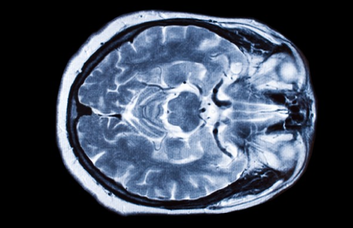
 First it was giving flu shots, now the role of pharmacists continues to expand to seniors' mental health. Arising out of a partnership between the Government of Canada, Canadian Coalition for Seniors’ Mental Health and Shoppers Drug Mart, a new initiative has been developed aimed at helping seniors and their loved ones recognize depression. "“Depression isn’t easy for seniors to talk about, but your local Shoppers Drug Mart pharmacist can help,” said Mike Motz, president of Shoppers Drug Mart, in a news release. “Thanks to new education and information available in our stores, our pharmacists can help seniors to detect symptoms of mental illness and access treatment." Find out more here: http://www.nanaimobulletin.com/news/319529631.html?mobile=true  Sandy Halperin is a dentist and assistant professor at Harvard University, who received the devastating diagnosis of Alzheimer's disease when he was just 60 years old. Though it began with having difficulty recalling case details at his job, he and his family have noticed a persistent decline in his memory. In the article "Sandy's story", we are given an "unprecedented look at the cruel journey of a vibrant, once healthy man as he gradually loses his memory". While Sandy and his loved ones describe the difficulties and emotional turmoil that of course accompanies a progressive dementia, Halperin demonstrates inner strength and positivity as we learn about his work as an advocate for Alzheimer's, and how he's coping including spending time with family and living in the moment. "At times, the memory loss is painful, Halperin says. "All we really are is our thoughts," he says. "So this is a different kind of pain. The pain is emotional." According to research published in March by the Alzheimer's Association, among people 60 and older, an Alzheimer's diagnosis stirs more fear than any other disease — even cancer or stroke ... Losing the ability to think and recall — what could be defined as the very essence of being human — is almost universally terrifying. So terrifying that many people dwell for years in a state of denial."  Put your knowledge and skills to the test with this case of Mr. M, a 73 year old man, who presents to the ED after becoming light-headed and dizzy while walking his dog, in the context of worsening memory loss and increased syncopal events/hypotension over the last year. With regards to Mr. M's psychiatric history, he has experienced multiple episodes of depression beginning 15 years ago, for which he has been treated with a variety of antidepressants. His medical history is also quite complex and is significant for hypertension, CAD, triple bypass surgery, hyperlipidemia, and erectile dysfunction. Can you come up with a diagnosis or treatment plan? "Depressed and confused,and dizzy while walking the dog" by Adriana Sofia Perilla, Rekha Bandla, and Murali Rao (Current Psychiatry)  Dr. Harry L. Kozol, a man trained in both law and medicine, was a neurologist who was considered as one of the nation's top experts in the field of brain disorders. During his career, he became known for his work in forensic psychiatry as well as the field of neuropsychiatry which continues to evolve and gain further interest today. While Dr. Kozol spent his life assessing and diagnosing his patients, as he approached his 90s he made a life-changing diagnosis, except this time his patient was actually him. The diagnosis? Dementia. In this touching and honest memoir, Dr. Kozol's son Jonathan, chronicles his father's life, and particularly his journey with Alzheimer's disease. Through the novel, one also experiences the reactions, tensions, and heart-wrenching emotions family members and especially caregivers experience as they watch their loved ones deteriorate in front of their eyes. Recommended For: Caregivers, families affected by dementia and Alzhiemer's disease, family physicians and those interested in seniors mental health Service dogs have received well-deserved recognition in recent years for supporting those living with mental illness. Dementia Dogs is a recent initiative in Scotland aimed at training service dogs to help those living with dementia to maintain their independence. "[Dementia Dogs] can help people with dementia maintain their walking, sleeping and eating routine, remind them to take medication, improve confidence, keep them active and engaged with their local community, as well as providing a constant companion who will reassure when facing new and unfamiliar situations." To learn more about this amazing initiative, check out the Dementia Dogs website: http://dementiadog.org/index.html Spotlight on Geriatric Psychiatry at Toronto's Centre for Addiction and Mental Health (CAMH)6/13/2015  The Centre for Addiction and Mental Health is a national and global leader in psychiatric care. One area in which they specialize is seniors' mental health. A recent blog post appearing on CAMH's website highlights the experience of Dr. Angela Golas, a resident in the final weeks of her geriatric psychiatry residency, as she works with seniors in this area of practice. Check out this interview with Dr. Golas to read about her passion for geriatric psychiatry.  There is a well-established association between depression and Parksinson's disease, with most people living with the disease experiencing depression at some point during the course of the illness. Such symptoms have often been attributed to the experience of living with a chronic illness. New research, however, has demonstrated that individuals with depression are more likely to go on to be diagnosed with Parksinson's disease. "People who were hospitalized for depression were more likely to develop Parkinson’s, with the likelihood increasing with the number of hospitalizations related to depression...'This somewhat reverses the relationship between Parkinson's and depression,' said Alessandro Di Rocco, the director of the Parkinson’s and Movement Disorders Center at New York University's Langone Medical Center. 'Is it that people who have depression—or some people who have depression—are really people who are developing the first manifestation of Parkinson's disease before the tremors or other motor physical aspects of the disease become obvious?” To read more about the study's outcomes check out this great article recently published in The Atlantic: http://www.theatlantic.com/health/archive/2015/05/is-depression-a-symptom-of-parkinsons-disease/393800/ |
Description
Supporting and enhancing students' and health professionals' knowledge and understanding of mental health and psychiatry
Archives
June 2017
Categories
All
|


 RSS Feed
RSS Feed
